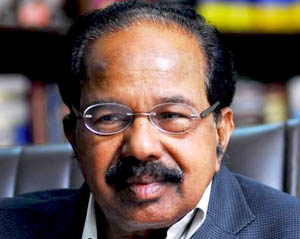 New Delhi, Mar 14: Backing its “tainted” leaders, the Congress on Thursday announced that former Union ministers Subodhkant Sahai and Pawan Kumar Bansal would contest the Lok Sabha elections from Ranchi and Chandigarh respectively, while Petroleum Minister M Veerappa Moily would be fielded from Chikkaballapur.
New Delhi, Mar 14: Backing its “tainted” leaders, the Congress on Thursday announced that former Union ministers Subodhkant Sahai and Pawan Kumar Bansal would contest the Lok Sabha elections from Ranchi and Chandigarh respectively, while Petroleum Minister M Veerappa Moily would be fielded from Chikkaballapur.
After the party’s Central Election Committee meeting, spread over two days, the Congress released a list of 71 candidates, including four replacements.
The second list featured a number of youth leaders, including Rizwan Arshad (Bangalore Central), Youth Congress president Rajeev Satav (Hingoli, Maharashtra), Dean Kuriakose (Idukki) and Hamdullah Sayeed (Lakshadweep).
The Congress rejected allegations of corruption against Bansal and Sahai, contending that they were perceived as tainted, but there were no cases against them. Congress sources said Arvind Kejriwal’s allegations against Moily were not the reasons for withholding his name in the first list of candidates announced last week.
Bansal resigned as the railway minister after his nephew Vijay Singla was arrested by the CBI, allegedly for accepting a bribe to influence appointments to the Railway Board. Sahai’s name figured in the coal scam.
The Congress re-nominated a number of Union ministers, including Shashi Tharoor (Thiruvananthapuram), V Narayanasamy (Puducherry), L Suresh (Mavelikkara), K V Thomas (Ernakulam), Mullapally Ramachandran (Vadakara), K C Venugopal (Alappuzha) and Vincent Pala (Shillong).





Comments
Add new comment